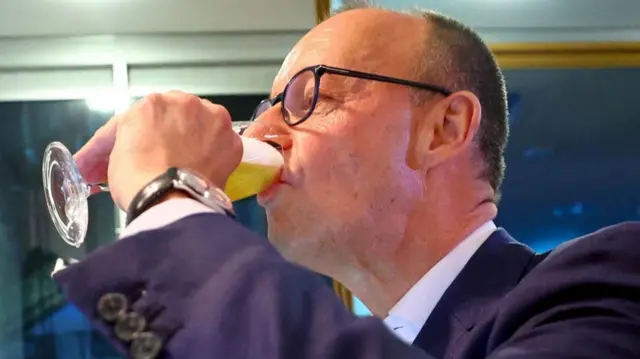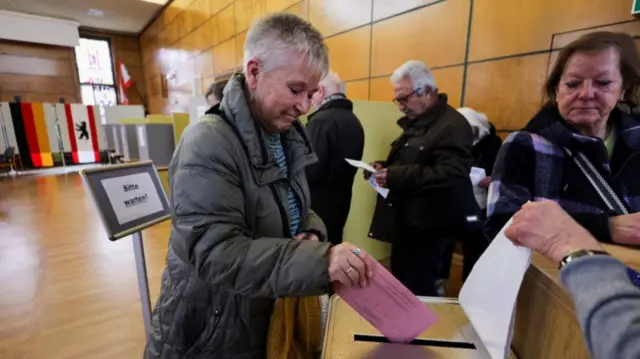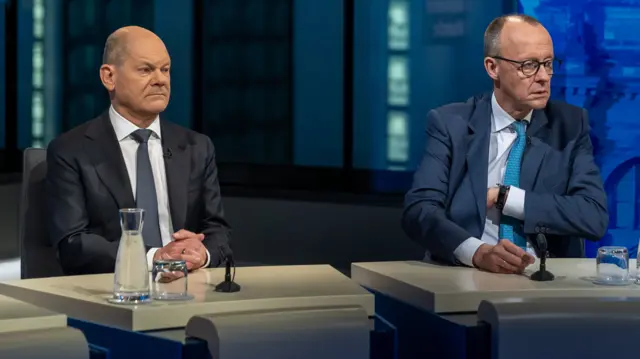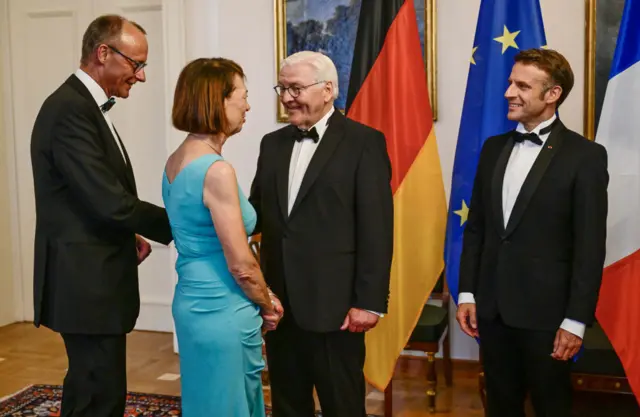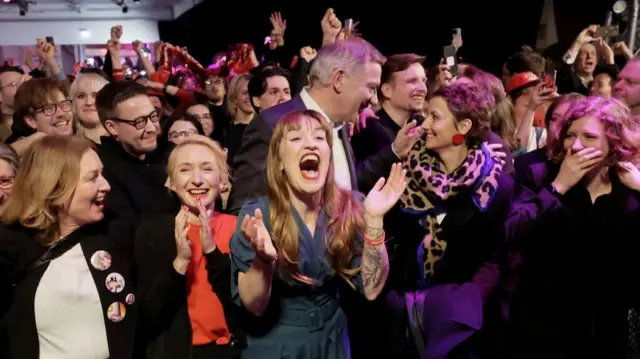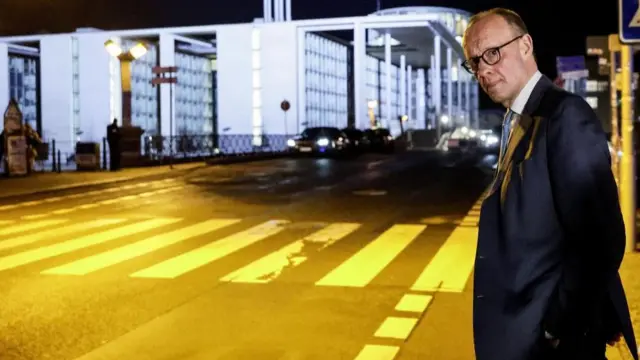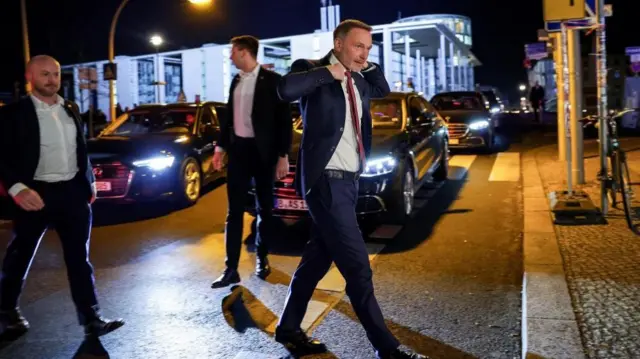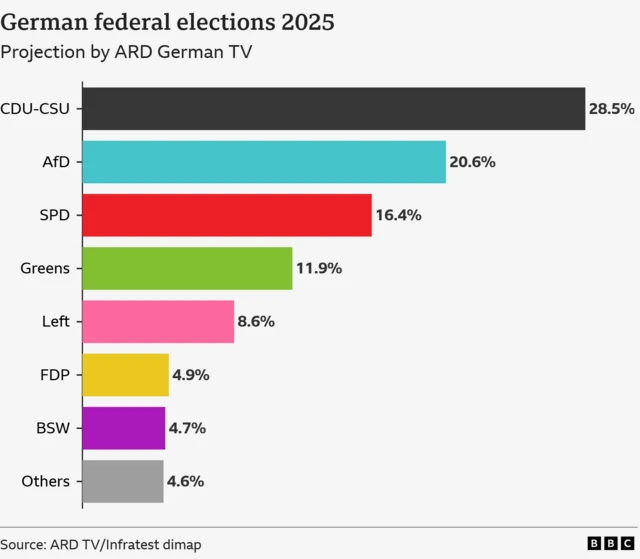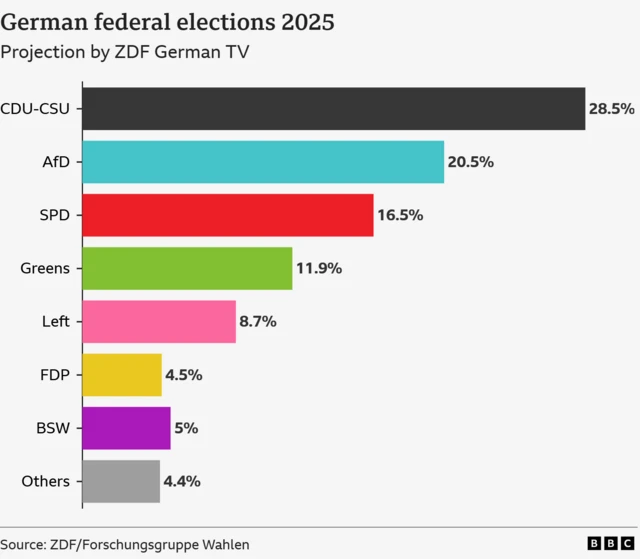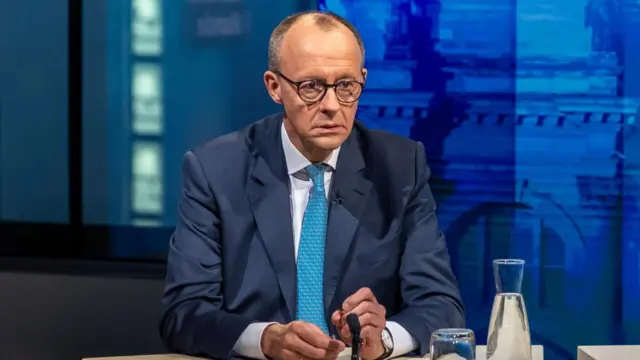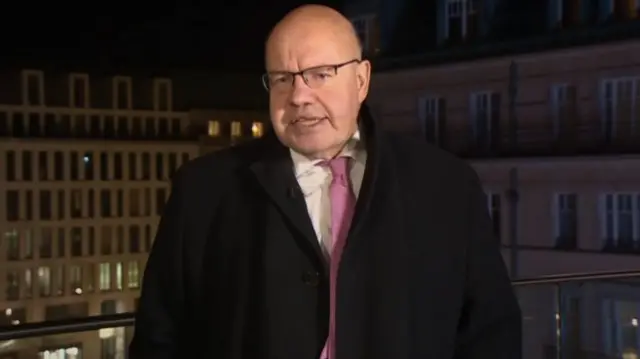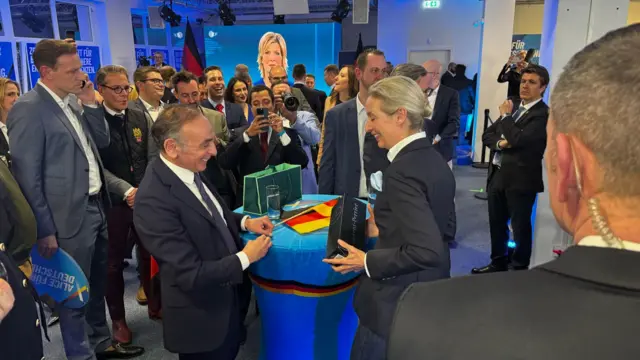That's all for nowpublished at 01:49 Greenwich Mean Time
The Conservatives won, the far right came second and now attention will turn to forming a coalition.
At the same time, today's election results saw the bitter defeat of outgoing chancellor Olaf Scholz's party and the resignation of the man responsible for the snap elections. His FDP party failed to get into parliament.
We're now pausing our live coverage of the German federal elections, but fear not, there's plenty to read.
Read our news story with a detailed account of what just happened, and our Berlin correspondent's assessment of the challenges ahead for Friedrich Merz.
Thanks for joining us.
